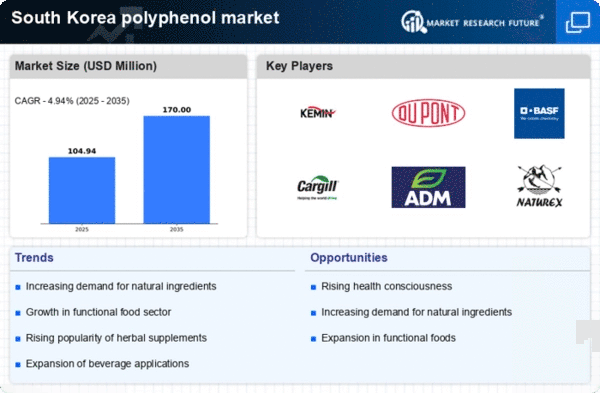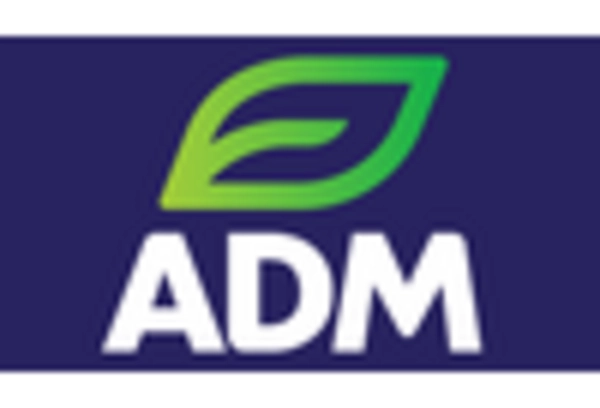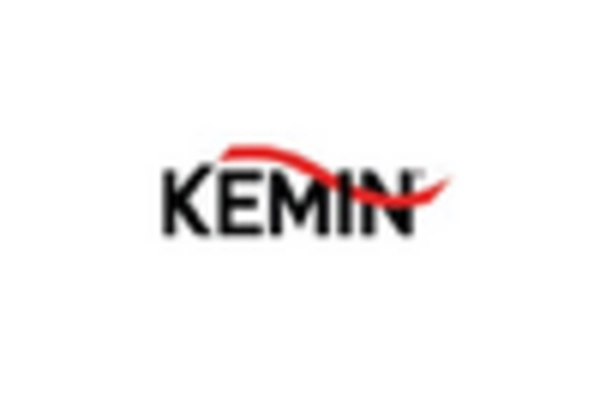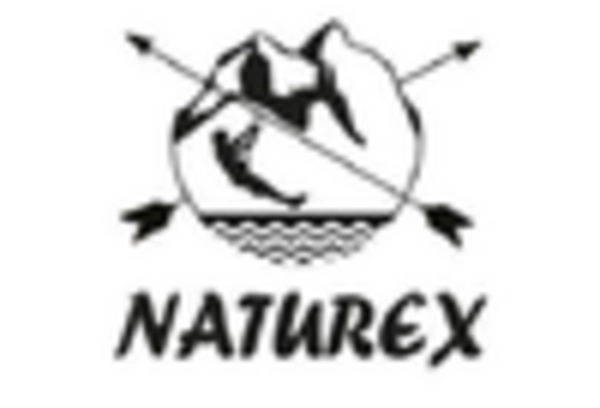The polyphenol market exhibits a dynamic competitive landscape characterized by innovation and strategic partnerships. Key players such as Kemin Industries (US), DuPont (US), and BASF (DE) are actively shaping the market through their distinct operational focuses. Kemin Industries (US) emphasizes product innovation and sustainability, aiming to enhance its portfolio of natural ingredients. DuPont (US) leverages its extensive research capabilities to develop advanced polyphenol solutions, while BASF (DE) focuses on expanding its market reach through strategic acquisitions and collaborations. Collectively, these strategies foster a competitive environment that prioritizes innovation and sustainability, driving growth in the sector.In terms of business tactics, companies are increasingly localizing manufacturing and optimizing supply chains to enhance efficiency and responsiveness to market demands. The competitive structure of the polyphenol market appears moderately fragmented, with several key players exerting influence. This fragmentation allows for a diverse range of products and innovations, although the presence of major companies like Cargill (US) and Archer Daniels Midland Company (US) suggests a significant concentration of market power among a few dominant entities.
In October Kemin Industries (US) announced the launch of a new line of polyphenol-rich extracts aimed at the nutraceutical sector. This strategic move is likely to enhance Kemin's position in the health and wellness market, aligning with the growing consumer demand for natural health products. The introduction of these extracts not only diversifies Kemin's product offerings but also reinforces its commitment to sustainability and innovation.
In September DuPont (US) unveiled a partnership with a leading biotechnology firm to develop bio-based polyphenol solutions. This collaboration is indicative of DuPont's strategy to integrate cutting-edge technology into its product development processes. By leveraging biotechnology, DuPont aims to create more efficient and sustainable production methods, which could significantly reduce costs and environmental impact.
In August BASF (DE) completed the acquisition of a smaller competitor specializing in plant-based polyphenols. This acquisition is expected to bolster BASF's product portfolio and enhance its competitive edge in the market. By integrating the acquired company's technologies and expertise, BASF is likely to accelerate its innovation pipeline and expand its market presence in the polyphenol sector.
As of November current trends in the polyphenol market are increasingly defined by digitalization, sustainability, and the integration of artificial intelligence (AI) in product development. Strategic alliances among companies are shaping the competitive landscape, fostering innovation and enhancing supply chain reliability. The shift from price-based competition to a focus on technological advancement and sustainable practices is becoming more pronounced. Moving forward, competitive differentiation will likely hinge on the ability to innovate and adapt to evolving consumer preferences, with a strong emphasis on quality and sustainability.
















